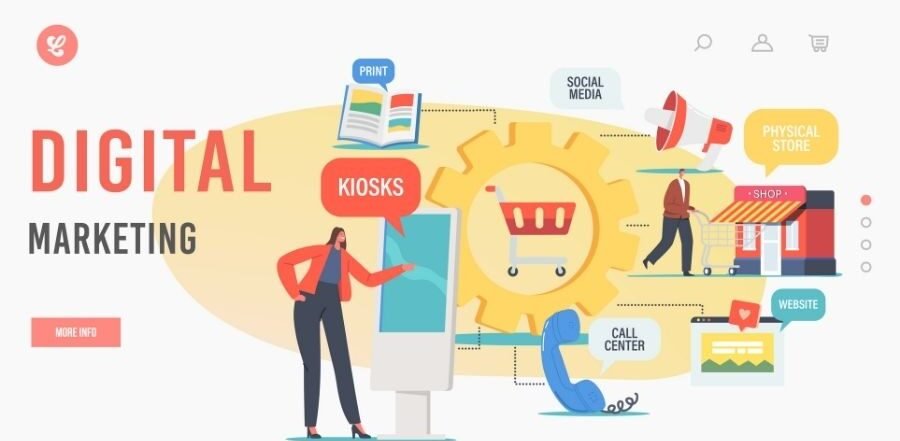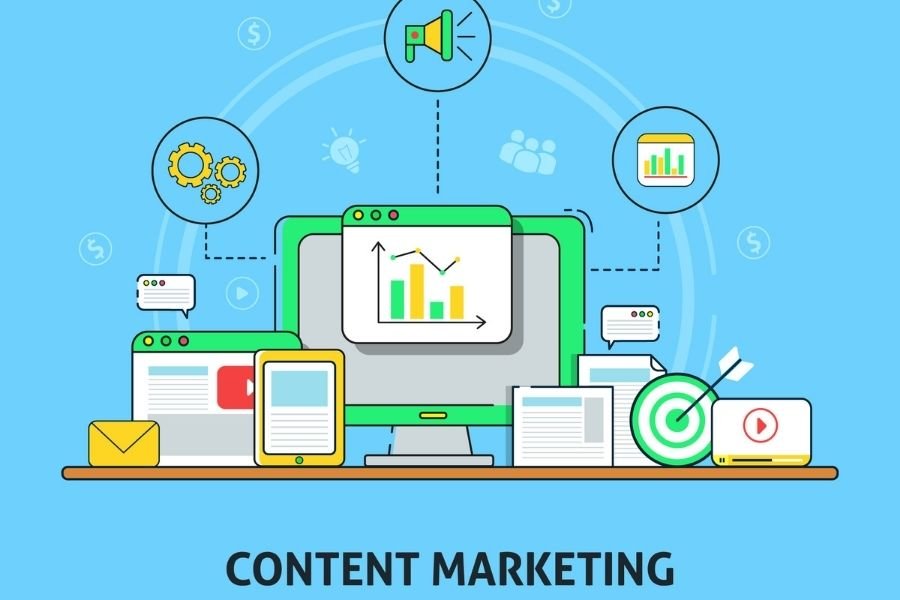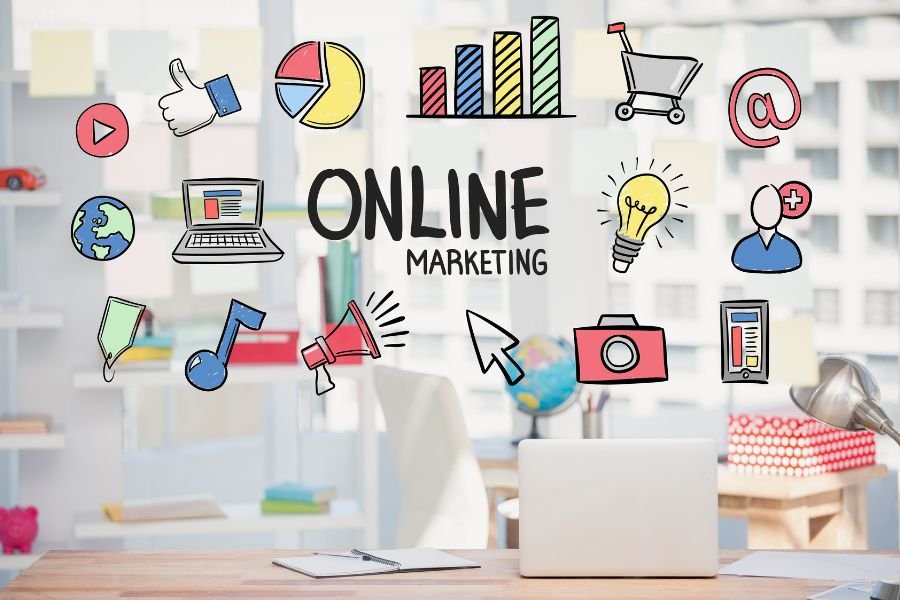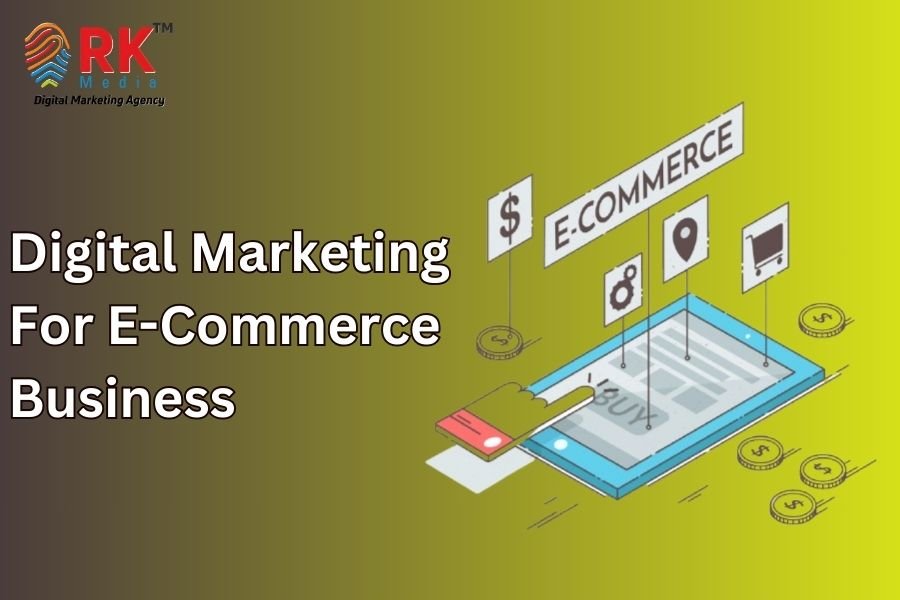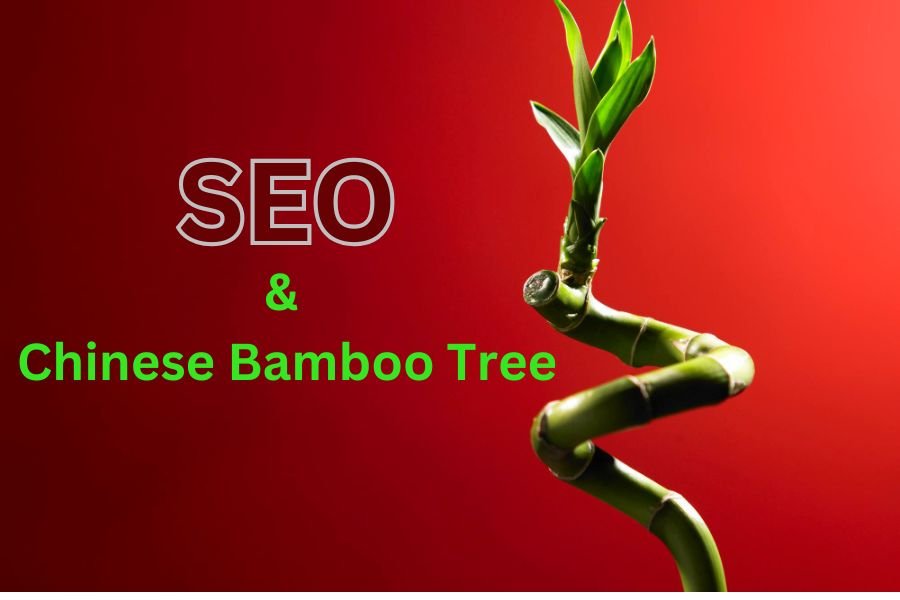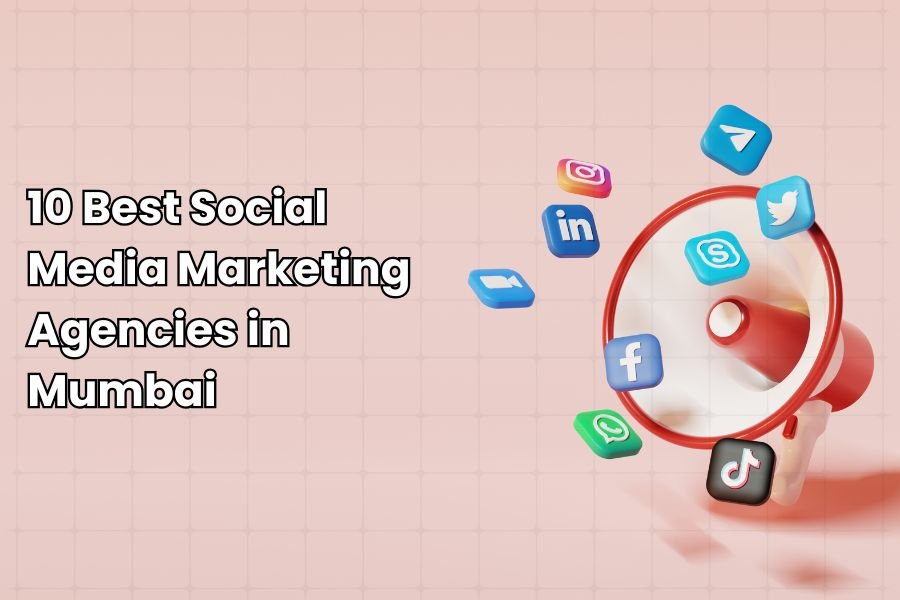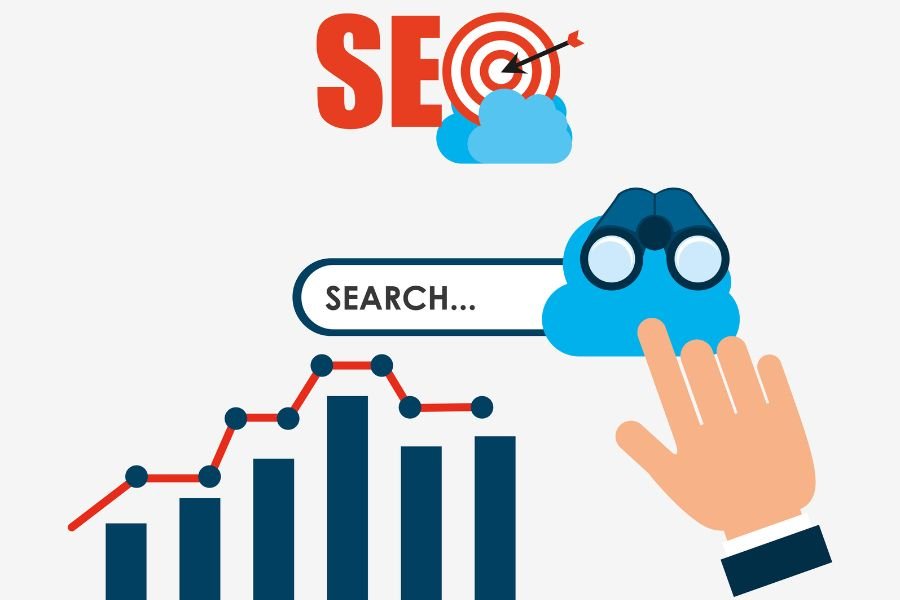Digital Marketing for E-commerce: Key Strategies to Boost Online Sales
In today’s highly competitive online marketplace, digital marketing is crucial for e-commerce success. With millions of online stores vying for attention, it’s essential to develop an effective digital marketing strategy that drives traffic, engages customers, and boosts sales. In this article, we’ll explore key digital marketing tactics tailored for e-commerce businesses and answer important questions about how these strategies can help you grow your online store.
What Is Digital Marketing for E-commerce?
Digital marketing for e-commerce refers to the online strategies used to promote products and services and convert visitors into customers. These strategies encompass a variety of techniques, such as search engine optimization (SEO), social media marketing, content marketing, email campaigns, and pay-per-click (PPC) advertising.
For e-commerce businesses, digital marketing is more than just a tool for visibility; it’s a necessity for staying competitive in a crowded market. E-commerce relies on digital channels to attract customers, make sales, and build brand loyalty. By implementing the right digital marketing tactics, businesses can increase their reach and generate more sales.
Why Is SEO Important for E-commerce Success?
Search engine optimization (SEO) is one of the most effective ways to attract organic traffic to your online store. SEO involves optimizing your website so that it ranks higher on search engine results pages (SERPs), making it easier for potential customers to find your products.
For e-commerce businesses, SEO is crucial because customers often begin their shopping journey with a search query. Key SEO strategies for e-commerce include:
- Keyword Optimization: Research and use relevant keywords in your product titles, descriptions, and meta tags to improve visibility.
- Technical SEO: Ensure your website is fast, mobile-friendly, and easy to navigate to enhance user experience and search engine rankings.
- Product Descriptions: Use clear, detailed, and keyword-rich descriptions for your products to help them rank higher in search results.
By investing in SEO, e-commerce businesses can drive sustainable, long-term traffic to their website without relying solely on paid advertising.
How Can Social Media Marketing Drive E-commerce Growth?
Social media platforms like Instagram, Facebook, and Pinterest are powerful tools for promoting e-commerce brands. These platforms allow businesses to engage directly with their audience, showcase products, and build a loyal customer base.
Social media marketing for e-commerce includes:
- Visual Storytelling: Use high-quality images and videos to create visually appealing content that highlights your products.
- Customer Engagement: Engage with your audience through comments, direct messages, and interactive features like polls and stories.
- Targeted Ads: Social platforms allow for highly targeted advertising, ensuring your ads are seen by users who are most likely to purchase your products.
Successful e-commerce brands often run product launches, flash sales, and influencer collaborations on social media, driving both brand awareness and sales.
What Are the Benefits of Pay-Per-Click (PPC) Advertising for E-commerce?
PPC advertising is a paid digital marketing strategy where businesses bid on keywords and pay each time their ad is clicked. For e-commerce, PPC is an excellent way to target customers who are already searching for products like yours.
Some benefits of PPC advertising for e-commerce include:
- Instant Results: Unlike SEO, which takes time to build, PPC campaigns can start driving traffic and conversions almost immediately.
- Targeted Reach: PPC allows you to target users based on location, device, search behaviour, and even demographics.
- Measurable ROI: You can track how much you’re spending on ads and compare it to the sales generated to ensure you’re getting a positive return on investment.
Optimizing your PPC campaigns involves refining your keyword strategy, writing compelling ad copy, and experimenting with different ad formats (like shopping ads or display ads) to see what works best for your audience.
How Does Content Marketing Improve E-commerce Sales?
Content marketing is an essential part of digital marketing for e-commerce, as it helps build trust with your audience and establish your brand as an authority in your niche. Content marketing involves creating valuable, informative, and engaging content that educates your customers about your products or industry.
Effective content marketing strategies for e-commerce include:
- Blog Posts: Create informative articles that answer common customer questions or provide product recommendations.
- Product Guides: Offer detailed guides or tutorials that show customers how to use your products.
- Video Content: Use videos to demonstrate product features or share customer testimonials.
By creating helpful and engaging content, you can build stronger relationships with your customers and guide them toward making a purchase.
Why Is Email Marketing Crucial for E-commerce Businesses?
Email marketing is one of the most effective channels for building customer relationships and driving repeat sales. For e-commerce businesses, email marketing can help with everything from welcoming new customers to sending personalized product recommendations.
Here are some key email marketing strategies for e-commerce:
- Personalized Offers: Send targeted offers based on a customer’s past purchases or browsing behavior.
- Cart Abandonment Emails: Encourage customers to complete their purchases by sending follow-up emails when they abandon their shopping carts.
- Product Recommendations: Suggest related products or new arrivals based on customer preferences.
Using segmentation and automation tools can help you send the right message to the right audience at the right time, maximizing the impact of your email campaigns.
How Can Influencer Marketing Help E-commerce Brands?
Influencer marketing has become a popular strategy for e-commerce businesses looking to reach new audiences. By partnering with influencers—social media personalities with large followings—e-commerce brands can promote their products to highly engaged and targeted audiences.
Here’s how influencer marketing works for e-commerce:
- Authentic Endorsements: Influencers provide genuine reviews and testimonials, which can build trust and credibility for your brand.
- Expanded Reach: Influencers help expose your products to their followers, many of whom may not have discovered your brand otherwise.
- Content Creation: Influencers often create high-quality content (photos, videos, etc.) featuring your products, which you can repurpose for your own marketing efforts.
E-commerce brands that leverage influencer marketing can benefit from increased brand visibility and trust, ultimately leading to higher sales.
What Are the Key Metrics to Track in Your E-commerce Digital Marketing Strategy?
To ensure your digital marketing efforts are paying off, it’s important to track key performance indicators (KPIs). Some of the most important metrics for e-commerce include:
- Traffic: How many visitors are coming to your website?
- Conversion Rate: What percentage of visitors are making a purchase?
- Average Order Value (AOV): How much are customers spending on average per transaction?
- Customer Retention: How many customers are coming back to make repeat purchases?
Tools like Google Analytics, Shopify, or other e-commerce platforms provide valuable insights into these metrics, helping you fine-tune your strategy for maximum results.
How Can You Combine Multiple Digital Marketing Channels for Maximum E-commerce Growth?
To achieve the best results, e-commerce businesses should integrate multiple digital marketing channels into a cohesive strategy. Combining SEO, social media marketing, PPC, content marketing, and email marketing can create a powerful synergy that amplifies your overall results.
Here are a few tips for cross-channel marketing:
- Align Your Messaging: Ensure that your brand voice and message are consistent across all platforms.
- Leverage Data: Use insights from one channel (e.g., email or social media) to inform and improve your strategy on other platforms.
- Experiment: Test different combinations of channels to find the most effective mix for driving traffic and conversions.
FAQs: Frequently Asked Questions
What is digital marketing for e-commerce?
Digital marketing for e-commerce refers to using online strategies to promote products or services and convert visitors into customers. This includes SEO, social media marketing, content marketing, PPC, and email campaigns to drive traffic and boost sales.
Why is SEO important for e-commerce?
SEO helps your online store rank higher on search engines, making it easier for customers to find your products. It increases organic traffic, improves website visibility, and leads to long-term sales growth.
How can social media marketing benefit e-commerce businesses?
Social media marketing helps e-commerce brands engage directly with their audience, promote products through visuals, and build customer loyalty. It also allows targeted advertising, driving sales and brand awareness.
What are the advantages of PPC advertising for e-commerce?
PPC advertising delivers instant traffic and conversions, provides targeted reach, and offers measurable ROI. E-commerce businesses can target customers searching for their products and track ad performance to optimize results.
How can different digital marketing channels be integrated for e-commerce growth?
Combining SEO, social media, PPC, content marketing, and email campaigns creates a cohesive strategy. Align messaging, leverage data from each channel, and experiment with cross-channel tactics to drive maximum traffic and conversions.
Conclusion
At RK Media, we’ve seen firsthand how businesses thrive when they implement the right strategies for digital marketing for e-commerce. Imagine an online store struggling to stand out amid a sea of competitors. With a carefully crafted digital marketing approach, that same store can transform into a top destination for its target audience. Our team specializes in helping e-commerce brands do just that—driving traffic, boosting engagement, and ultimately increasing sales.
We begin by laying a strong foundation with SEO, ensuring that your products are easily discoverable by search engines and, most importantly, by your customers. From there, we amplify your reach through social media marketing, where we tell your brand’s story through engaging visuals and interactive campaigns. Combine this with the power of PPC ads, content marketing, and personalized email campaigns, and you’ve got a robust digital marketing strategy designed specifically for e-commerce success.
Our commitment goes beyond just setting up campaigns. We continuously analyze the key metrics that matter, fine-tuning your strategy for maximum impact. At RK Media, we don’t just want your e-commerce business to grow; we want it to lead, leaving a lasting impression on your audience. Let us help you unlock your full potential in the world of digital marketing for e-commerce and build a brand that stands out.
Image Reference: Freepik
Disclaimer: All trademarks, logos, and brand names are the property of their respective owners. All company, product, and service names used in this website are for identification purposes only. Use of these names, trademarks, and brands does not imply endorsement

